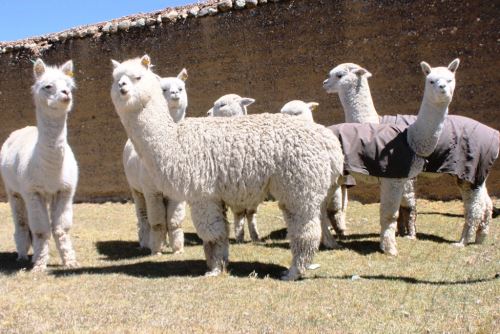A multidisciplinary team of researchers from the
National University of San Marcos (UNMSM) and international experts have been investigating the development of alpaca nano antibodies with the aim of contributing to the diagnosis and treatment of COVID-19.
The research project is named "SARS-CoV-2 genome sequencing in Peru and development of specific nano antibodies against the spike protein for diagnosis and/or treatment purposes." It is led by Raul Rosadio, Dean of San Marcos' Faculty of Veterinary Medicine (FMV).
The working group also includes a molecular biologist from the aforementioned faculty, two researchers from the Faculty of Human Medicine and one from the Faculty of Pharmacy and Biochemistry, plus the collaboration of international experts from Great Britain, Brazil and Spain.
According to the UNMSM, the research work seeks to get detailed information on when, where and how much COVID-19 has changed or mutated
since it first reached Peru, in order to contribute to the diagnosis and treatment of the virus, as well as to support undergraduate and graduate thesis research.

The Lima-based university reported that the Faculty of Veterinary Medicine has a high-tech genome sequencing equipment to carry out said research.
The project is planned to be implemented in three phases, taking as the starting point 300 molecular samples identified as positive by PCR at the
National Health Institute (INS).
In this way, by means of the state-of-the-art genome sequencer owned by the FMV, the genomic analysis of microorganisms will be initially carried out on Peruvian samples so as to sequence between 95% and 98% of the approximately 30,000 base pairs that make up the coronavirus genome.
"The information on variants or mutations of the virus in Peru will be obtained later through a computer analysis called computational modeling," Rosadio explained.
(END) NDP/RMB/MVB
Published: 9/2/2020